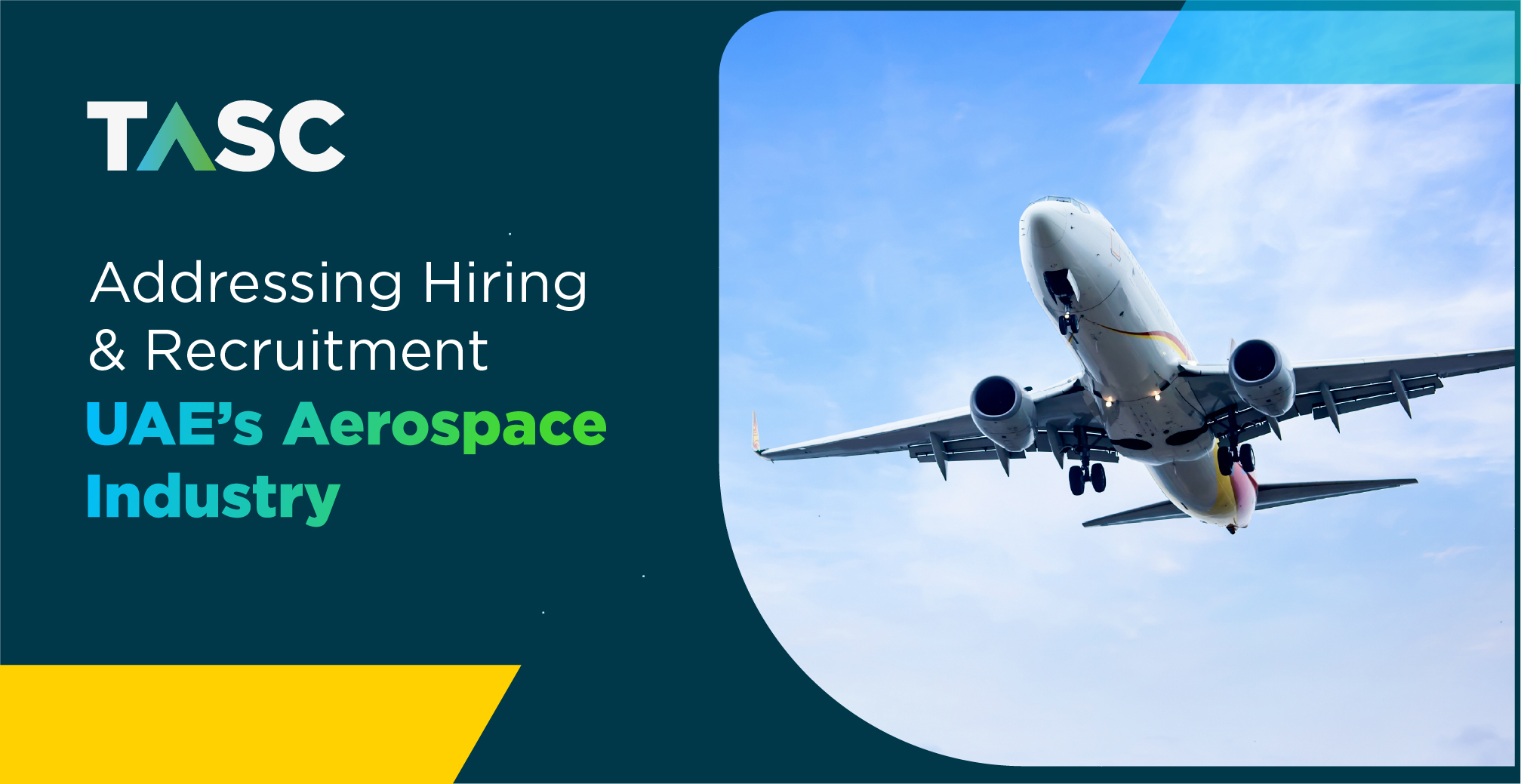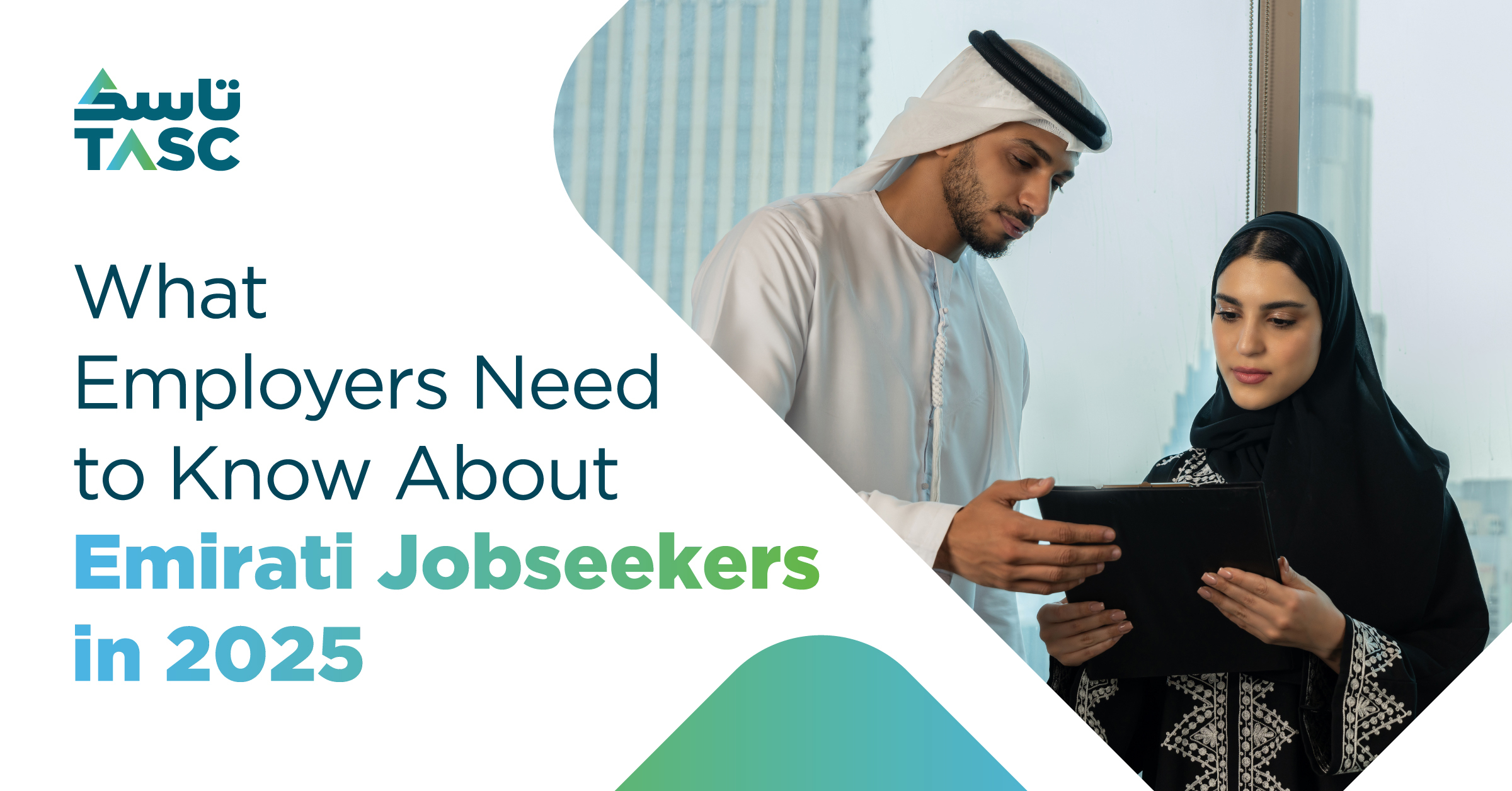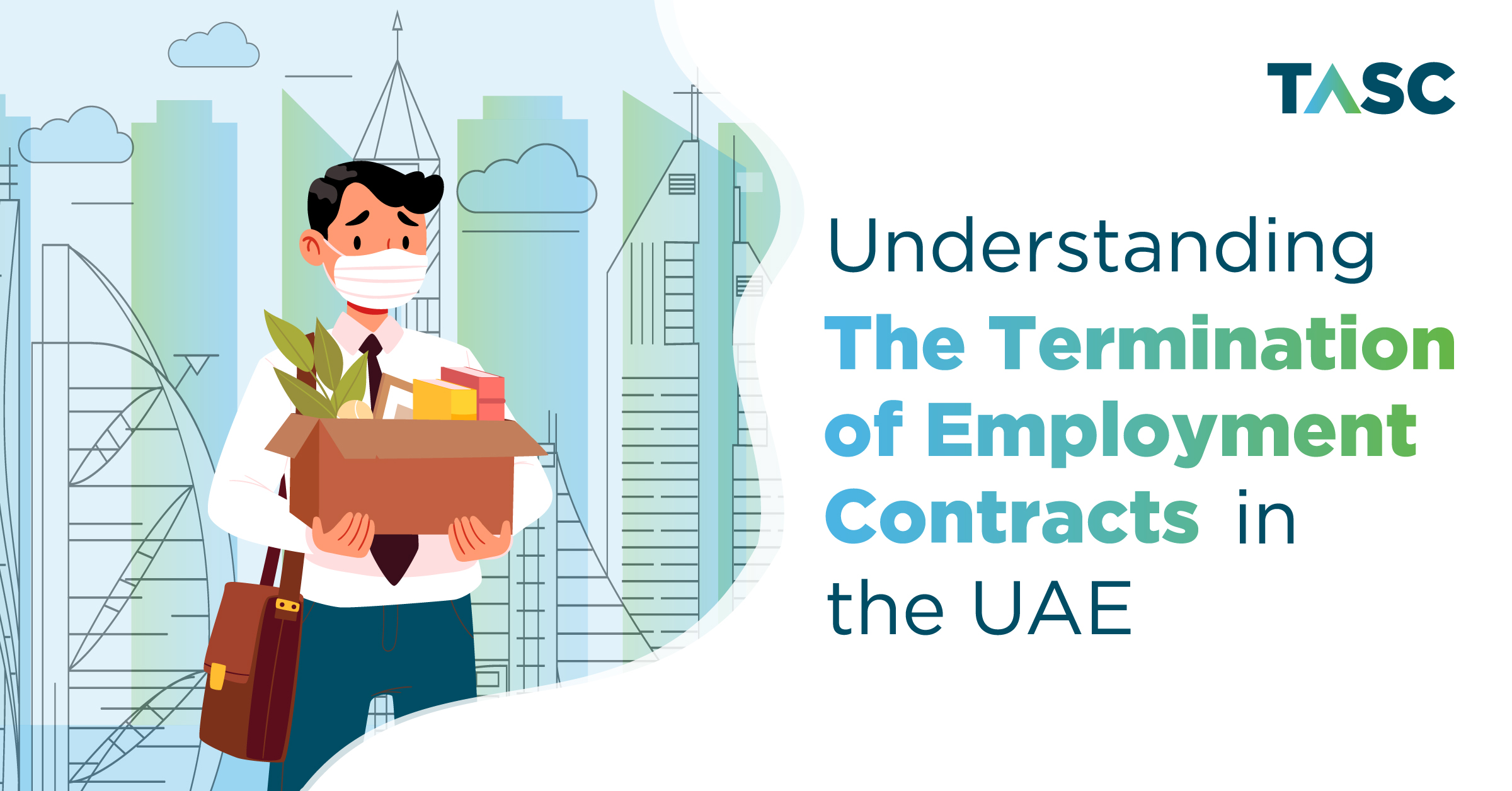Addressing Hiring & Recruitment Challenges in UAE’s Aerospace Industry
The aerospace industry in the UAE is expanding at a remarkable pace, contributing significantly to the country's economic growth. With ambitious government initiatives such as the UAE's National Space Programme and advancements in aviation and aircraft manufacturing, the demand for a skilled workforce is on the rise.
However, despite this growth, companies in the UAE’s aerospace sector face unique challenges when it comes to hiring and recruitment. As a UAE recruitment agency, TASC understands these challenges and strives to provide effective solutions for businesses in this sector.
In this blog post, we'll walk you through the hiring hurdles aerospace companies in the UAE are facing and how you can overcome them to secure the talent you need.
The Growing Demand for Skilled Workforce in the UAE Aerospace Industry
The UAE aerospace industry is more than just aviation. It includes sectors such as defence, aviation manufacturing, space exploration, and more. With the UAE’s growing position as a global player in space exploration, there’s a clear need for highly skilled professionals.
Whether it’s engineers, technicians, aviation specialists, or even non-technical roles in management, the industry is in constant need of experts who can contribute to its rapid development.
As the industry grows, the demand for skilled workers only increases. However, finding the right talent with the expertise and experience needed to fill these roles is no easy task.
Recruitment Challenges in the Aerospace Industry
The UAE aerospace industry faces a variety of recruitment challenges that make it difficult for companies to hire and retain top talent. Understanding these challenges can help you craft more effective recruitment strategies. Below are some of the key hurdles in the recruitment process:
Lack of Local Talent
One of the most significant challenges in the UAE aerospace industry is the limited availability of skilled local talent. Aerospace is a highly specialized field, and the UAE’s workforce does not yet produce enough graduates with the necessary technical skills. It is particularly evident in fields such as engineering, avionics, and aerospace manufacturing.
While the government is making efforts to promote STEM education and encourage young Emiratis to pursue careers in aerospace, the process of training a highly skilled workforce takes time. This means that many aerospace companies in the UAE have to look beyond the local talent pool and source professionals from international markets.
Competition with Global Companies
The UAE's aerospace sector is not the only one vying for top talent. The country’s strategic location and growing reputation in the aerospace field make it an attractive destination for multinational aerospace companies. These companies often have large budgets and can offer attractive salaries, benefits, and perks to prospective employees.
This puts local businesses in a difficult position, especially smaller companies that cannot compete with the offers from global giants. When trying to recruit talent, you’re not just competing with local companies but with international aerospace firms that have a global presence and significant resources.
Training and Skill Development Gaps
Despite the government’s push for education and skill development, there is still a gap between the skills required in the aerospace sector and the skills being developed locally. As a result, companies often find themselves having to invest in training new hires or offering continuous professional development opportunities to keep their employees up-to-date with the latest industry trends.
This gap can result in delays in recruitment, as businesses may need to train new hires extensively, adding more time and cost to the hiring process. Additionally, some specialized roles may require certifications that take years to acquire, making it even more challenging to fill positions quickly.
Cultural and Linguistic Barriers
The UAE is home to a highly diverse, multicultural workforce, with expatriates from all over the world. While this diversity is a strength, it can also create hiring challenges, particularly when it comes to language barriers and cultural differences. Recruiting individuals who can adapt to the UAE's unique working culture, communicate effectively with colleagues from different backgrounds, and understand local business norms is essential.
Cultural fit can sometimes be just as important as technical skill, but finding employees who align with the company’s values and work culture can be tricky, especially when hiring internationally.
Strategies for Overcoming Recruitment Challenges
As a recruitment agency, TASC helps businesses navigate these challenges by offering a range of hiring methods to overcome the difficulties of hiring in the UAE’s aerospace sector. Below are some of the key strategies we recommend:
Build Strategic Partnerships with Local Universities
A strong pipeline of skilled talent begins with education. One of the most effective ways to address the shortage of local talent in the aerospace industry is by partnering with local universities and educational institutions that offer aerospace programs. By working closely with universities, companies can offer internships, scholarships, and career development programs to help students gain hands-on experience and transition into the workforce smoothly.
In addition, creating mentorship programs where experienced professionals guide new graduates can help bridge the skill gap and develop a future talent pool for the industry.
Adopt Technology-Driven Recruitment Solutions
The UAE’s aerospace industry can benefit greatly from AI-driven recruitment tools. Using automation, data analytics, and machine learning can help streamline the hiring process, making it faster and more efficient. AI can be used to screen resumes, match candidates to the best-fit roles, and even conduct initial interviews, saving both time and resources.
Moreover, AI tools can help businesses reduce bias in the recruitment process, ensuring that candidates are selected based on their skills and qualifications rather than external factors. These technologies also make it easier to assess large volumes of applicants, ensuring that no talent is overlooked.
Invest in Continuous Training and Certification Programs
If you’re struggling to find qualified candidates, why not train them yourself? Many aerospace companies in the UAE are now focusing on upskilling their existing workforce through training programs and certifications. These programs can be tailored to meet the specific needs of your business, from technical skills training to leadership development programs.
By investing in continuous professional development, you not only improve the skill set of your existing employees but also create a culture of growth and learning within your organization, which can help you retain talent in the long term.
Attract Global Talent to the UAE
If you’re unable to find the talent you need locally, it’s essential to cast a wider net and attract global talent. The UAE offers many incentives for expatriates, including tax-free salaries, a high standard of living, and a business-friendly environment.
To make the UAE even more attractive, companies can offer relocation assistance, housing benefits, and family support programs for international hires. Additionally, by focusing on the UAE's reputation as a global hub for aerospace innovation and growth, companies can position themselves as employers of choice for international professionals.
Emphasize Cultural Integration and Support
When hiring international talent, it’s important to provide a smooth cultural transition. Offering cultural integration programs, language courses, and support for expatriates can help ease the transition into the UAE workforce. Providing a welcoming environment will not only help employees feel comfortable but also improve retention rates.
Wrapping Up
The UAE’s aerospace industry is evolving, and with it comes the need for highly skilled professionals. However, recruiting and hiring in this specialized sector comes with its own set of challenges. By adopting strategic recruitment practices such as building partnerships with local universities, investing in continuous training programs, and attracting global talent, companies can overcome these challenges and build a skilled workforce that drives innovation and growth in the industry.


.jpg)


